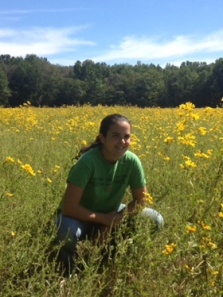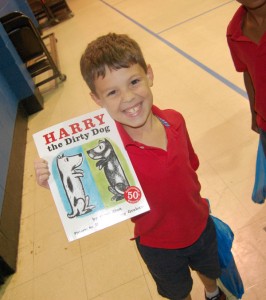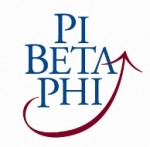new posts in all blogs
Viewing: Blog Posts Tagged with: Guest Blog Post, Most Recent at Top [Help]
Results 1 - 5 of 5
How to use this Page
You are viewing the most recent posts tagged with the words: Guest Blog Post in the JacketFlap blog reader. What is a tag? Think of a tag as a keyword or category label. Tags can both help you find posts on JacketFlap.com as well as provide an easy way for you to "remember" and classify posts for later recall. Try adding a tag yourself by clicking "Add a tag" below a post's header. Scroll down through the list of Recent Posts in the left column and click on a post title that sounds interesting. You can view all posts from a specific blog by clicking the Blog name in the right column, or you can click a 'More Posts from this Blog' link in any individual post.

By: Kathy Temean,
on 8/25/2014
Blog:
Writing and Illustrating
(
Login to Add to MyJacketFlap)
JacketFlap tags:
Tips,
writing,
inspiration,
Advice,
Process,
revisions,
article,
Guest Blog Post,
Erika Wassall,
When to Stop Writing,
Add a tag
 When Do Writers Stop Writing? by Erika Wassall
When Do Writers Stop Writing? by Erika Wassall
So we’re writers… right?
We write…
And we write…
And then we write some more.
The problem is, sometimes it’s hard to STOP writing and say… okay, it’s done.
Don’t get me wrong. I don’t mean “Done” as in you’ll never alter anything about it ever again. My title is of course not realistic. We never stop writing. And we’ll revise again and again with editors or agents.
But at some point, we have to decide, it’s ready to be submitted.
This is tough for a lot of us. We may have been working on something for years, and it’s evolved, morphed and been not just revised but re-envisioned (a term I took from Jill Corcoran’s videos) so many times. And each time, it’s become better, stronger and more complete.
We could go on with that forever, and it would just keep getting better… right?
But there is a line. There comes a point where we have to make the leap of faith and start submitting our work. Sometimes easier said than done.
I can’t tell you when your work is done. I’m not sure anyone can. Some people are lucky, they can just “feel it”.
Me? Sigh. I wish.
Not at all. I’m ALWAYS left thinking… maybe one more person’s critique will help, or maybe one more re-write of the this paragraph will be even better!
I like to have a checklist. It gives me a good basis for being sure I haven’t missed anything major:
1) First round of revisions – this is usually checking for consistency and flow, because my first drafts are a bit… rough.
2) Time off – serious time off, usually a month
3) The big change – almost all of my manuscripts have at some point had some major change or revision that has made things click. Some have had more than one. For me, it’s an important part of my process.
4) More revisions and feedback from other writers and people I trust.
5) Falling apart at some point and thinking it’s not any good. For me, if this hasn’t happened at least once, I’m not done. This usually leads to another short spurt of time off, a week or so of ignoring all writing-related thoughts.
6) The writer in me wins out and I dive back in.
Then I usually sit here in this stage for a while, bouncing around in revisions, critiques, thoughts etc. Problem is: me? I could sit here forever. At some point, I just have to pull the darn trigger!
If I can look back and know that I did right by myself and the story I have to tell, it’s time to start narrowing down the list of agents I’m going to target.
Plus, at this point, I usually have a few new ideas percolating in the brain, so they’re a good distraction to keep myself from revising that sentence just one more time.
Am I saying this is a good checklist for other people?
NOT AT ALL.
I think everyone’s checklist/process is different. But I do think it can be helpful to have some sort of checklist in your mind, to go through whatever steps you need as a writer and individual to make your manuscript the best it can be.
I have one final step after the checklist. This is usually the only way I’ve ever able to draw that intimidating line of saying IT’S READY NOW:
Create a deadline!
I can never quite get to the point where I say, “It’s done NOW.” But I AM able to say, “It’ll be done in a month.” And then stick to that.
And then I have to just tell myself, that’s it. It’s ready. I have to trust myself and commit that that’s my Final Answer.
An exciting time for sure, but finishing a manuscript and sending it out into the world often holds it’s share of anxiety of uncertainty. But it’s an important part of the process and guess what…
… your manuscripts deserve it!
Thanks Erika for another valuable post.
Erika Wassall is a writer, a farmer and a liver of life. She is a member of SCBWI and a proud Mad Scientist, bringing science experiments right into children’s classrooms, and hearts. She has a small farm in New Jersey with sheep, chickens, pigs and vegetables. Check out her new website at www.TheJerseyFarmScribe.com where as a first generation farmer, she often takes the long way, learning the tricks of the trade on The Farm. On her website is also The Shop page with tips and a free Q/A from her husband’s mechanic shop, and The Writer page where she shares stories, experiences and characters from the heart. Follow her on Twitter at @NJFarmScribe. She’d love to hear from you!
Talk tomorrow,
Kathy
Filed under:
Advice,
article,
inspiration,
Process,
revisions,
Tips,
writing Tagged:
Erika Wassall,
Guest Blog Post,
When to Stop Writing 


By: Kathy Temean,
on 5/13/2014
Blog:
Writing and Illustrating
(
Login to Add to MyJacketFlap)
JacketFlap tags:
Author,
inspiration,
Advice,
Art Exhibit,
How to,
Researching Agents,
Guest Blog Post,
Erika Wassall,
Jersey Farm Scribe,
Add a tag

Jersey Farm Scribe here on…
Researching Agents
A completed, polished and ready to be submitted manuscript is a beautiful thing. Now it just has to find a home! But not just ANY home. It has to be just right.
You want the world to see this manuscript! See it’s creativity, it’s uniqueness and the joy it will bring others!
You’ve written your query letter and you’re ready to track your submissions.
But who should you submit to?
If you’re like me, the first thing you think to yourself is…
ANYONE AND EVERYONE!!!!
Then I have sit back… rein in my crazy… and remind myself… absolutely nothing is for everyone.
Plus, agents want to know that I’m submitting to them for a reason specific to my manuscript and not feel like I’m just going down a list sending to everyone who popped up when I Googled “Picture Book Agent”.
And wouldn’t you?
Some agents receive 100s of queries a DAY! That’s a LOT to shift through. It’s important that they immediately know that you are submitting to them because there is something special about THEM that makes the manuscript a good fit.
Okay, okay. So I’ll only submit to agents who are a good fit. How do I find that out??
Research!! Research!! And more research!!
Newsletters like Publishers Lunch and sites like Publishers Weekly contain valuable information about deals being made and what’s going on in the industry. This can keep you in the loop about what specific agencies are looking for, or where they think the industry is trending.
Websites like Writer’s Digest have all kinds of agent lists to give you a good starting point of who to look into.
Social media like Twitter or Facebook are excellent ways to learn a bit about the agent personally. You can learn a lot from reading through their posts. You may even find them talking about their MSWL (manuscript wish list)!!
Blogs like this one! Kathy frequently has wonderful posts about what an agent or publisher is looking for. You can also check out blogs like Guide to Literary Agent, and Literary Rambles.
GOOGLE THEM! (Did you know Merriam-Webster’s Dictionary officially listed “Google” as a verb in 2006? Crazy!!)
Before submitting to ANY one, I do a THOROUGH Google stalk… I mean search. I read and re-read every interview I can find with them it. I look at what conferences they attend and what organizations they are a part of. I look up who their past and current clients are and read interviews of them.
And it’s worth it. Being able to say in my query letter that I was drawn to their definition of literary development in their 2007 interview with such-and-such is a great way to show that I’ve done my research!
Which leads me to my last…. And possibly most important point:
BE HONEST! Most of this is obvious. Don’t say you attended a conference they were at if you didn’t, don’t say you were referred to them by someone if you weren’t.
But it’s more than that.
You don’t want to portray yourself as someone you’re not. Don’t say you align with their thoughts on where MG novels were trending towards if you really don’t.
Oh why not? What’s the harm of buttering them up a bit? It doesn’t REALLY matter.
But it does. In this relationship, trust and honestly MATTER.
While there is obviously no need to tell them you do NOT agree with a comment they made, or hated the last book deal they signed, it can be detrimental to the future relationship to say anything that is not an accurate representation of who you are, as both a writer a professional and a person.
The relationship with your future agent will be a give and take that will rely on trust and mutual respect. As innocent as it may seem, you do not want this connection to start off based on a bait and switch tactic.
When you DO land an agent, it will become an important relationship in your life.
Like other important relationships, not everyone is the perfect match and there is some vetting out that is done on both sides before coming together.
You and your agent will join forces and present your manuscript — your blood, sweat and tears, your creation — out into the world. You don’t want that to be a person you just picked off of a list!
It’s worth it, to do the footwork, see who’s out there, and truly find the place your work will be happiest to call home.
______________________________________________________________
Erika Wassall is a writer, a farmer and a liver of life. She is a member of SCBWI and a proud Mad Scientist, bringing science experiments right into children’s classrooms, and hearts. She has a small farm in New Jersey with sheep, chickens, pigs and vegetables. Check out her new website at www.TheJerseyFarmScribe.com where as a first generation farmer, she often takes the long way, learning the tricks of the trade on The Farm. On her website is also The Shop page with tips and a free Q/A from her husband’s mechanic shop, and The Writer page where she shares stories, experiences and characters from the heart. Follow her on Twitter at @NJFarmScribe. She’d love to hear from you!
Thank you Erika for another great post.
Talk tomorrow,
Kathy
Filed under:
Advice,
Art Exhibit,
Author,
How to,
inspiration Tagged:
Erika Wassall,
Guest Blog Post,
Jersey Farm Scribe,
Researching Agents 


By: Gina Rullo,
on 9/21/2012
Blog:
First Book
(
Login to Add to MyJacketFlap)
JacketFlap tags:
books,
General,
reading,
Literacy,
Books & Reading,
Philanthropy,
First Book,
donations,
Guest Blog Posts,
Success Stories,
Guest Blog Post,
Virtual Book Drive,
First Book Supporters,
Virtual Book Drives,
Jacquelyn Adams,
Add a tag
Today’s guest blog post is an excerpt from avid reader, Jacquelyn Adams. She is currently in medical school where she is pursuing her dream of becoming a doctor. Education has always been an important issue for Jacquelyn. She lends her support to this issue by raising money for First Book through a virtual book drive in which she created for her love of reading.
Reading has been an enormous part of my life for as long as I can remember. I used to get sent to the principal’s office in third grade for leaving my desk to hide in the corner of the room and finish my latest Box Car Children Mystery. Without the novels of my childhood, I have no idea what my life would be like. I grew up in a world of stories, adventures, romances, and mythical creatures. It is why I am who I am today.
Last semester, I heard a story that brought me to tears. One of the surgeons I was shadowing was talking about a story he saw online. It was about a program called First Book that had come to southern West Virginia and was helping provide books to children in need. He said that over half of the middle schoolers in that area had never owned their own book. I was blown away.
By seventh grade, I had multiple bookshelves filled to the brim and more overdue library books than a thesis student. How could a seventh grader not far from my front door not own a single book? I asked him as much, and he said “That is why you are in medical school and they are struggling to graduate high school.”
Every time I think about this conversation, I feel guilt and determination. Every child deserves the joy of reading. Every child deserves the chance to live in a world of stories, adventures, romances, and mythical creatures. Every child deserves his or her own first book. That is why I am starting this fundraising page. I hope you all can help, and I hope you will choose to get involved with First Book.
Jacquelyn aimed to raise $200 through a virtual book drive and has already succeeded in reaching her goal. Just like Jacquelyn, you or anyone you know can create a virtual book drive to support First Book in an effort to get books to children in need.


By: Gina Rullo,
on 9/12/2012
Blog:
First Book
(
Login to Add to MyJacketFlap)
JacketFlap tags:
books,
reading,
Literacy,
summer,
Books & Reading,
Education,
Book Recipients,
First Book,
Guest Blog Posts,
Success Stories,
Guest Blog Post,
Bonne Ecole Elementary,
Add a tag
Today’s blog post is from Jenny Helber. Jenny is a parent volunteer at Bonne Ecole Elementary School located in Slidell, Louisiana. She has created an initiative entitled the ‘Twelve Books program’ at her children’s school. The program ensures that the children in her community have the access to books they need to succeed.
How does a school address the “summer slump” and ensure that when the school’s doors are closed, the opportunity to read is not closed as well? Bonne Ecole Elementary in Slidell, Louisiana came up with the idea to create the Twelve Books program which gives emergent readers twelve self-selected books to take home and keep on the last day of school.
Funding this project on a small budget and relying on outside support were the biggest challenges faced in the initial year. Thanks to First Book and funds raised from grants and community donations, Bonne Ecole’s Twelve Books program served 130 students (every first grader), distributing 1,561 books for a total cost of $3,300.
Highlights from the first year of Twelve Books’ included a week of celebrity readers, a book fair, and the year-end Twelve Books for Kids event where students received a bag of books in the style of an Oprah show giveaway.
According to first grade teacher Susan Schwaner, “you cannot imagine the incredible anticipation, excitement, and desire of the students to have twelve books of their own to read over the summer.”
The impact of giving kids access to books is demonstrated in feedback from parent Diane Ripley who said her son, “was so excited to show me the books he chose…and this is my son who ‘hates to read’ as he says almost every time he has to read.”
If you want to make the kind of difference Jenny made at your local school, talk to your child’s teacher, librarian or reading specialist about First Book and help them get signed up today!

 Guest blogger Tamara Dunham is a member of the Iowa Gamma chapter of Pi Beta Phi Fraternity for Women at Iowa State University. While interning with the Small Business Administration in Washington, D.C., Tamara has continued her support of First Book by volunteering at First Book events and introducing her coworkers to the mission of First Book. Together First Book and Pi Beta Phi have distributed over 1 million books across the United States and Canada. This would not have been possible without the enthusiastic support and volunteering spirit exhibited by Pi Phis like Tamara.
Guest blogger Tamara Dunham is a member of the Iowa Gamma chapter of Pi Beta Phi Fraternity for Women at Iowa State University. While interning with the Small Business Administration in Washington, D.C., Tamara has continued her support of First Book by volunteering at First Book events and introducing her coworkers to the mission of First Book. Together First Book and Pi Beta Phi have distributed over 1 million books across the United States and Canada. This would not have been possible without the enthusiastic support and volunteering spirit exhibited by Pi Phis like Tamara.
As a current member of Pi Beta Phi Fraternity, each year I participate in several philanthropic events on and around campus, including charity-sponsoring events. One organization that Pi Phi supports is First Book. The Fraternity’s commitment to literacy dates back almost 100 years, and because of this commitment we continually raise funds for First Book to provide books to children in need.
While interning in Washington DC, I volunteered for First Book’s “Shameless Promotion” event held during the American Library Association (ALA) Conference. First Book invited authors to help make a video to promote the “First Book Story.” There were lots of willing authors and illustrators who shared something about themselves as well as put their touch on the reading of the “First Book Story.” The ALA Conference was a very rewarding opportunity to take part in because the authors and illustrators are so passionate about getting kids to read and reaching out to those who do not have access to books. I really look forward to seeing the final product and hope to share the enthusiasm of First Book on my campus.
In addition to participating in the ALA conference, I also had the chance to visit the First Book National Office to meet with the co-founder and the staff of First Book. After this visit, I discussed my experiences volunteering with First Book with my co-workers, and they too were very interested in being able to take part in such a worthy cause. Being involved with such a wonderful organization was very gratifying and I know that my continued support will help First Book reach out to children in need. First Book does wonderful things for children and I couldn’t ask for a better organization to be involved with.

 When Do Writers Stop Writing? by Erika Wassall
When Do Writers Stop Writing? by Erika Wassall





Erika, I’ve enjoyed every post you’ve put up. Thanks for another great one :) I’ve yet to work on my novels, but I do know that for me, many times with the shorter works, I think they’re done before they really are! So, it’s the problem in reverse! lol
Falling apart is definitely one that I think most writers accomplish at some point in the process. I usually do it after someone tells me that what I’m writing is no good or they don’t like it or they don’t understand it … and right before I get ticked off and start thinking “I’ll show them.”
I figure most writers get rejected a LOT before something gets accepted so I might as well submit it over and over revising in between. At some point someone will accept it and then it’s DONE.
Oooh, I could see that too! What a great point!
So nice to know falling apart is a shared experience!! :-)
And you’re absolutely right… “done” is definitely a moving target right up until publication.